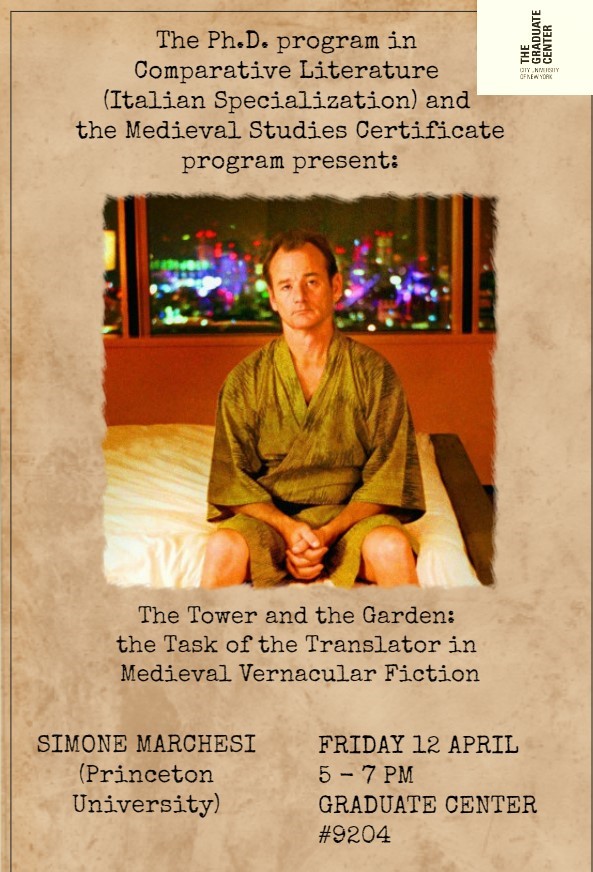 Among the modern tropes controlling the sense we have of translation today there are perhaps two main ones: first, that multilingualism is a curse –the linguistic curse– visited upon a fallen human race, and, second, that translation always involves a loss in signification, an exile from the intentions of the original text, a decay from a pristine fullness of meaning. Medieval conceptualizations of translation do not align with this view. Rather, there is a general sense of optimism pervading a wide range of texts which have at their center the experience of translation into vernacular languages, in particular as it made to unfold in Edenic garden-settings. In my talk, I present two case studies showcasing such optimism and its connection with Patristic tenets and imagery. Two texts taken from the French tradition will help delineate the theory behind the tropes of felicitous translation, and a block of interconnected passages from Dante’s Comedy, chosen as a representative of the Italian tradition, will provide indications of how the tropes will be actualized in the sphere of poetic practices.
Among the modern tropes controlling the sense we have of translation today there are perhaps two main ones: first, that multilingualism is a curse –the linguistic curse– visited upon a fallen human race, and, second, that translation always involves a loss in signification, an exile from the intentions of the original text, a decay from a pristine fullness of meaning. Medieval conceptualizations of translation do not align with this view. Rather, there is a general sense of optimism pervading a wide range of texts which have at their center the experience of translation into vernacular languages, in particular as it made to unfold in Edenic garden-settings. In my talk, I present two case studies showcasing such optimism and its connection with Patristic tenets and imagery. Two texts taken from the French tradition will help delineate the theory behind the tropes of felicitous translation, and a block of interconnected passages from Dante’s Comedy, chosen as a representative of the Italian tradition, will provide indications of how the tropes will be actualized in the sphere of poetic practices.



